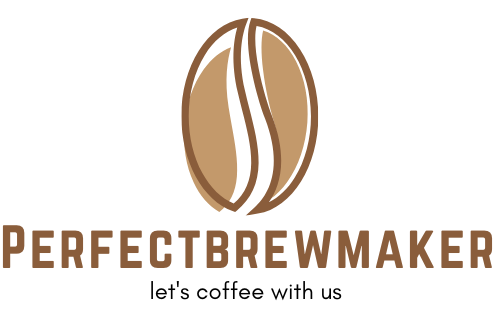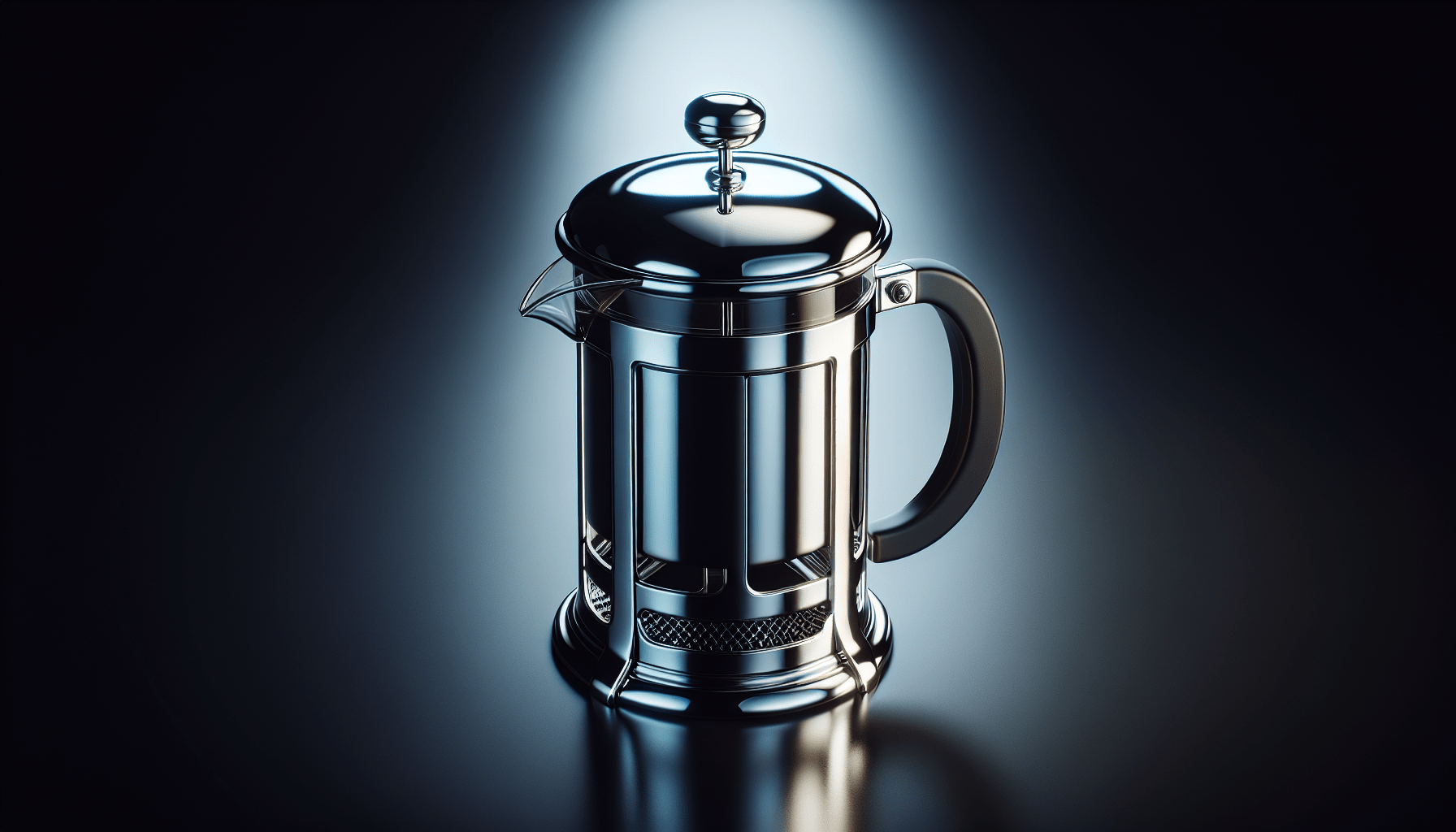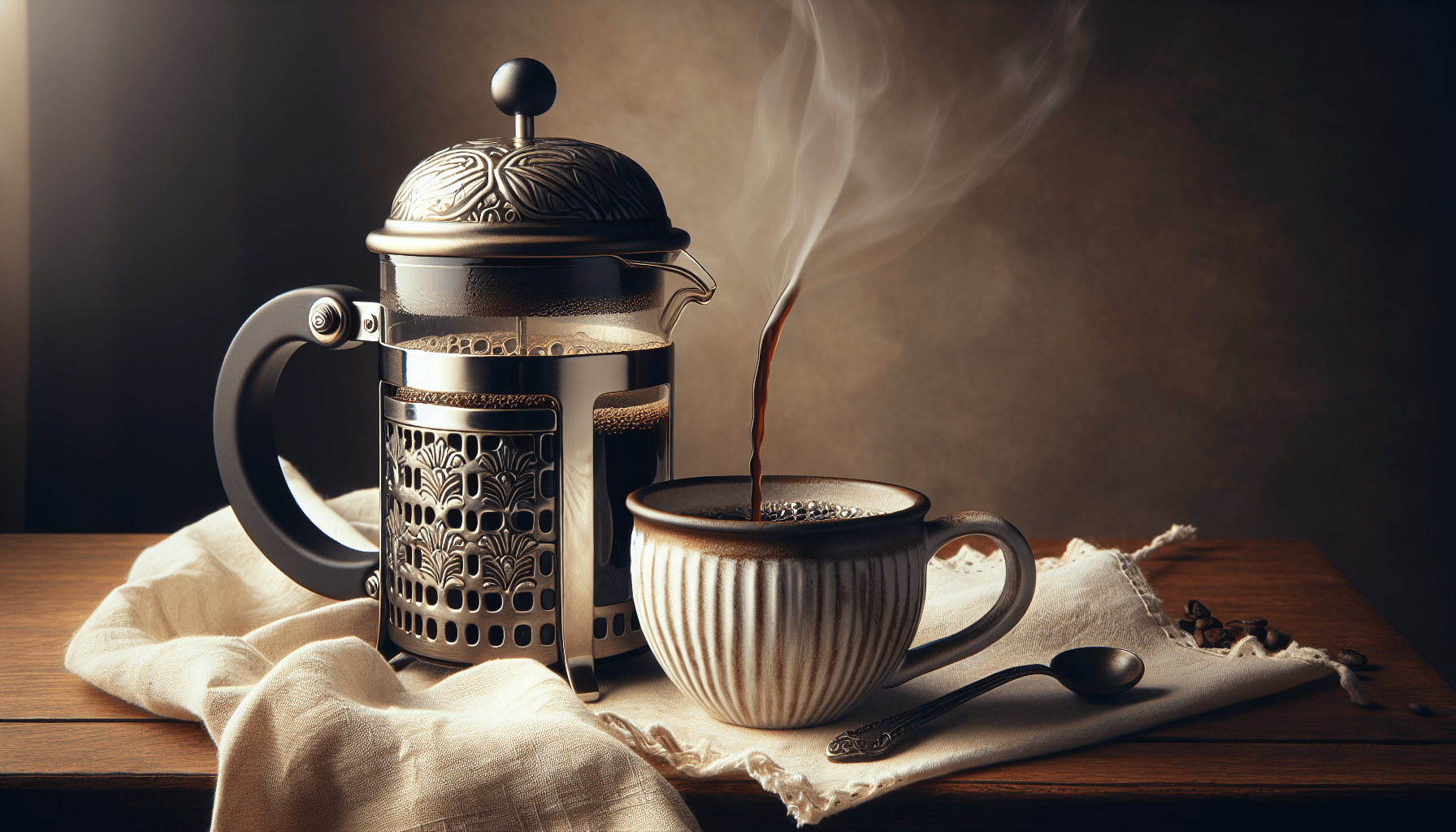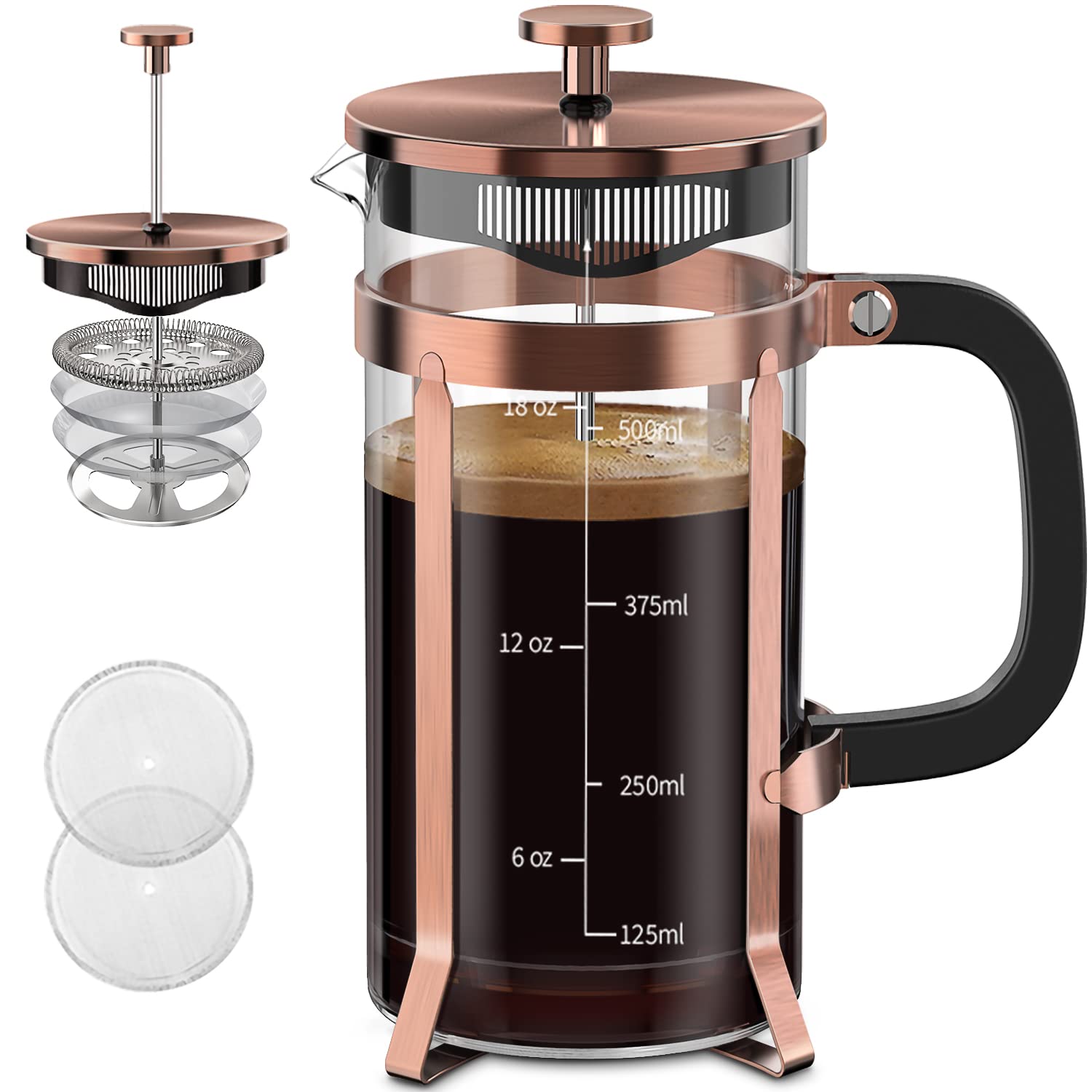Are you a coffee lover who appreciates the rich, indulgent flavors of a freshly brewed French press? If so, you might find yourself pondering an important question: what size French press should I get? With a plethora of options available, choosing the right size can make all the difference in your morning ritual. Whether you enjoy a solo cup of coffee or prefer to brew a larger batch for friends and family, this article aims to guide you through the factors to consider when selecting your ideal French press size. So, grab your favorite mug, settle in, and let’s find the perfect fit for your coffee brewing needs.
Considerations for Choosing the Right Size
When it comes to choosing the right size for a French press, there are a few factors you should consider. These considerations include the number of servings you’ll need, the brewing time you’re comfortable with, the storage space you have available, and the portability of the French press.
Number of Servings
The number of servings you’ll need is an important factor to consider when choosing the size of your French press. If you typically make coffee just for yourself or for a small group, a smaller French press may be sufficient. However, if you often entertain guests or have a large family, a larger French press might be a better choice.
Brewing Time
The brewing time is another important consideration when choosing the size of your French press. If you’re always in a rush and need your coffee quickly, a smaller French press with a shorter brewing time may be the best option. On the other hand, if you have more time to spare and enjoy the process of brewing coffee, a larger French press with a longer brewing time may be more suitable.
Storage Space
Considering the storage space you have available is crucial when choosing the size of your French press. If you live in a small apartment with limited counter space, a compact French press would be the ideal choice. However, if you have ample storage space or a large kitchen, a bigger French press may not be an issue.
Portability
If you’re someone who often travels or enjoys camping, portability might be a key factor in your decision. Smaller French presses are generally more portable and easier to take on the go. They are lightweight and convenient for outdoor activities and travel. However, if you’re primarily using your French press at home and portability is not a concern, the size may not be as important.
Size Options Available
French presses come in a range of sizes, each suited for different needs. Let’s explore the three main size options available:
3-cup French Press
The 3-cup French press is perfect for solo use or small servings. It can brew approximately three cups of coffee, which is around 12 ounces. This size is ideal if you’re the only coffee drinker in your household or if you only need a small amount of coffee at a given time. It’s also great for individuals who prefer to savor their coffee slowly, as the smaller size allows for multiple servings without the coffee getting cold.
8-cup French Press
The 8-cup French press is a popular choice for small gatherings or when you have a few coffee drinkers in your household. It can brew approximately 32 ounces, which is equivalent to eight cups of coffee. This size provides enough coffee to satisfy multiple people without making too much that goes to waste. It’s a versatile option that strikes a balance between serving size and convenience.
12-cup French Press
The 12-cup French press is suitable for large gatherings or when you frequently entertain guests. It can brew approximately 48 ounces, which is equivalent to twelve cups of coffee. This size is perfect for parties, brunches, or when you have a large family or group of friends who appreciate a good cup of coffee. However, it’s important to note that the 12-cup French press requires more time for brewing and will also require ample storage space.
Factors to Consider for Different Sizes
Now that we know the available sizes, let’s dive into the specific factors to consider for each size option:
3-cup French Press
The 3-cup French press is ideal for solo use or small servings. It’s perfect if you live alone or if you’re the only coffee drinker in your household. The smaller size allows for a more intimate coffee-drinking experience, where you can truly savor every sip. Additionally, the brewing time for a 3-cup French press is relatively quick, ensuring you can have your coffee ready in no time. Furthermore, its compact size makes it easy to store in small kitchen spaces or cabinets.
8-cup French Press
The 8-cup French press is a versatile option that can accommodate small gatherings. It’s perfect for households with a couple of coffee drinkers or when you have guests over for coffee. Brewing time for an 8-cup French press may take slightly longer than the 3-cup size, but the convenience of having enough coffee to satisfy multiple people makes it worth the wait. It strikes a good balance between brewing time and serving size. In terms of storage, the 8-cup French press is moderate in size and can fit comfortably in most kitchens.
12-cup French Press
The 12-cup French press is for those who need to cater to large gatherings or events. It’s perfect for parties, brunches, or when you have a big family or group of friends who are coffee enthusiasts. The brewing time for a 12-cup French press may take longer compared to the smaller sizes, but the efficiency of brewing a large amount of coffee at once makes it suitable for occasions where time is not a constraint. However, it’s important to consider the storage space required for a 12-cup French press, as it is larger than the other sizes and may not be suitable for small kitchens or limited storage areas.
Personal Preference and Usage
In addition to the practical aspects of choosing the right size, personal preference and usage play a crucial role when selecting a French press. Here are a few additional factors to consider:
Frequency of Use
Assessing how often you plan to use your French press is important in determining the right size. If you only occasionally enjoy a cup of coffee or have limited counter space, a smaller French press may be more suitable. However, if you’re a daily coffee drinker or frequently entertain guests, a larger French press may be worth considering.
Individual Serving Size
Consider how much coffee you typically consume in one sitting. If you prefer smaller servings or like to have multiple cups throughout the day, a smaller French press may be the better choice. However, if you enjoy larger servings or have a high caffeine intake, a bigger French press will allow you to brew more coffee in one go.
Brewing Style
Your preferred brewing style can also influence the size of French press you should choose. If you enjoy experimenting with different brewing techniques and coffee-to-water ratios, a larger French press may provide more flexibility. On the other hand, if you prefer a more straightforward brewing process and know exactly how much coffee you need, a smaller French press may be sufficient.
Cost Considerations
When it comes to purchasing a French press, cost is an important factor for many individuals. Consider the following cost considerations when selecting a size:
Budget Constraints
Evaluate your budget and determine how much you’re willing to spend on a French press. Smaller French presses tend to be more affordable compared to larger ones. If cost is a significant concern for you, opting for a smaller size can help you stay within your budget.
Pricing of Different Sizes
French presses of different sizes come with varying price ranges. Generally, larger French presses are more expensive due to their larger capacity and higher-quality materials. If you have a flexible budget and prioritize brewing larger quantities of coffee, investing in a larger French press may be worth considering. However, if you’re on a tighter budget or don’t require large quantities of coffee, a smaller French press can be a cost-effective option.
Quality and Durability
When purchasing a French press, it’s important to consider the quality and durability of the product. The longevity of your French press will significantly impact its value for money. Here are key factors to assess:
Materials Used
French presses are commonly made from stainless steel or glass. Stainless steel French presses are generally more durable and can withstand accidental drops without breaking. They also provide better heat retention, keeping your coffee hot for longer. Glass French presses, on the other hand, offer a visually appealing brewing process and allow you to monitor the coffee’s color and clarity. However, they may be more fragile and require careful handling.
Construction and Engineering
Consider the construction and engineering of the French press you’re considering. Look for features such as a sturdy handle, a well-fitted plunger, and a tight-fitting lid. Check for customer reviews and ratings to ensure the French press you choose is reliable, well-built, and designed to last.
Final Decision
After considering all the factors mentioned, it’s time to make your final decision. Here’s a summary of the steps to help you choose the right size French press:
Evaluate Your Needs
Assess the number of servings you’ll need, the brewing time you’re comfortable with, the storage space available, and the portability requirements.
Consider Long-Term Use
Think about your long-term usage and how often you plan to use the French press. Evaluate your preferred serving size and brewing style.
Balance Size and Functionality
Balance your personal preferences, usage patterns, and needs with the size options available. Consider the trade-offs between convenience, brewing time, and storage space.
By following these steps and considering each factor, you can confidently choose the French press size that suits your coffee needs best. Remember that personal preference and usage play a significant role, so prioritize what matters most to you. Enjoy your brewing experience and savor every cup of delicious, homemade coffee!



